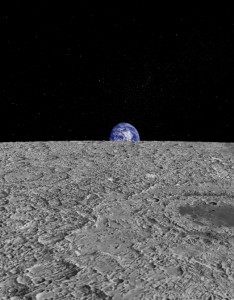The History of Histories (Part 11)
By Asher Crispe: November 13, 2012: Category Inspirations, Quest of the Question
Dual Deeds and Free Agents
 Up until now, we have dealt with four strata of history from the cosmic to the individual which we connected to the four letters of the Divine name Yud-Hei-Vav-Hei or Havayah which means ‘Being.’ Our parallel histories, in which a more particularistic level is wrapped inside a more universal or general one, constitute a fundamental structuring of Being. From this we may put forth that History is the implicate ontological order. With each of these concurrent histories having a signature ‘time stamp’ we might go even further and represent History as a series of temporal interpolations of Being.
Up until now, we have dealt with four strata of history from the cosmic to the individual which we connected to the four letters of the Divine name Yud-Hei-Vav-Hei or Havayah which means ‘Being.’ Our parallel histories, in which a more particularistic level is wrapped inside a more universal or general one, constitute a fundamental structuring of Being. From this we may put forth that History is the implicate ontological order. With each of these concurrent histories having a signature ‘time stamp’ we might go even further and represent History as a series of temporal interpolations of Being.
1) Individual History: Year
When Adam and Chava/Eve ate from the Tree of Life it was on the same day as their birth which fell out on Rosh Hashanah. Rosh Hashanah, which literally means the ‘head of the year’ conveys the sense of the consciousness of the year. When our mind is calibrated to think on the scale of the year we are attuning ourselves to the deterioration of the human condition that was a consequence of our becoming (overly) self-conscious. Moreover, since shanah or ‘year’ also implies change (shinui) we can definitely address this as a psychological challenge.
When I become overly attached to my ego or specific sense of self, then I tend to perceive others (even other versions of myself) as threatening. In the face of the other, my ‘I’ is alarmed at the prospect of change. Sometimes the alterations to my seemingly fixed identity come from the alterity of time itself. Time changes everything, for the essence of this definition of time is change. Thus, the loss of my old version of self can feel like the death of that person who I used to be. My willingness to accept that with each new year I am not only getting older, but that I am changing, ameliorates the prior perception of entropy as purely negative. When I deny change, when I tragically want things to remain forever the same, when I vainly cling to a single iteration of my personhood, then I feel the sting of my private sense of time eroding me. Individual history is marked in years beginning with the most commonly held expression of my time here on earth: my age counting from my birthday.
It all starts with becoming self-conscious on one’s birthday. If I can learn to see the good in all older versions of myself passing away, if I can start to embrace the change, to put myself into the ‘headspace’ of the year, then my ‘I’ goes with the flow. My self image relaxes its concern for the persistence of a picture-perfect identity (whether it was a hang up about the way I remember myself or the way I really was). With time ‘I’ ride. The breaking down and expiration of my old self gives way to the joy of rebuilding a new and improved me.
2) Jewish History
So if the year relates to individual history and the episode of eating from the Tree of Knowledge, what time-event founded the personal-collective history of the Jewish nation? The Exodus from Egypt was considered to have been the birth of a people. It was during this transitional time that the first commandment in the Torah is given to the Jews as a whole: Exodus 12:2 “This month is for you, the head of the months, it shall be for you the first of the months of the year.” From this verse we can find ample support for the likening of the Jewish people to the moon. The time frame of chodesh or ‘month’ is ‘for you’ meaning that you (the Jewish people), your temporal character and your history resemble the mentality of the moon.
The equating of Jewish history with the moon fits perfectly with our prior analysis of the significance of the diminishment of the moon. As we mentioned, the phases of the moon parallel the historic flux of Jewish history. The lunar cycles are bound up with Jewish spiritual capacities. Along these same lines, the Chassidic masters sometimes connect the light of the sun to the light of the nations of the world. We could also define it as the collective light of human history. The aptitude of the Jewish people for reflecting aspects of the whole of humanity is intimately connected with issue of the diminishing of the moon.
Since the lunar cycle of the month was awarded to the Jewish people at the time of the Exodus, we must investigate how this larger event informs our initial sense of the month. To accomplish this we must first call attention to the underling etymology of the word ‘Egypt’ or Mitzrayim which derives from the word meitzar which means ‘confinement’ and ‘limitation.’ Clearly all imprisonment and slavery implies these qualities.
 In Kabbalah, Egypt is not only a historic geo-political power, it is an existential condition. All of our reality can take on the feel of an Egypt or a state of confinement. As a result, the going of out Egypt is tantamount to transcending one’s limitations. Now pair this with the etymology of the word for ‘month’ (chodesh) which comes from chadash meaning ‘new’ or ‘novel’ and the picture becomes clearer. To have a lunar time consciousness is to be focused on the continual prospect of renewal. Moreover, this same word (chodesh) can also find kinship in the word chidush which means an ‘innovation.’ Our break out hedges on a breakthrough. Innovation, as the redemption that this aspect of time brings, enables us to transcend our limitations. Consequently, it is part of the foundational character of the Jewish people never accept the limitations of the ‘old’ world and to always try to push the boundaries through an endless number of innovation cycles.
In Kabbalah, Egypt is not only a historic geo-political power, it is an existential condition. All of our reality can take on the feel of an Egypt or a state of confinement. As a result, the going of out Egypt is tantamount to transcending one’s limitations. Now pair this with the etymology of the word for ‘month’ (chodesh) which comes from chadash meaning ‘new’ or ‘novel’ and the picture becomes clearer. To have a lunar time consciousness is to be focused on the continual prospect of renewal. Moreover, this same word (chodesh) can also find kinship in the word chidush which means an ‘innovation.’ Our break out hedges on a breakthrough. Innovation, as the redemption that this aspect of time brings, enables us to transcend our limitations. Consequently, it is part of the foundational character of the Jewish people never accept the limitations of the ‘old’ world and to always try to push the boundaries through an endless number of innovation cycles.
For our conclusion in Part Twelve we will move on to address the two remaining levels of history as they pertain to the week and the day.























;)
;)
;)
;)
;)
;)
;)
;)
;)
;)
